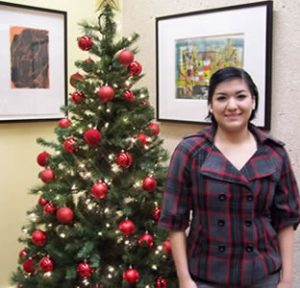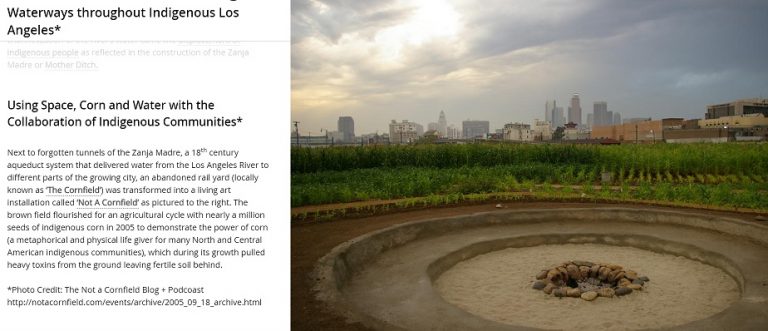Current Research
The ‘real’ of settler colonial society is built on the violent erasures of alternative modes of mapping and geographic understandings. (Re)mapping is about acknowledging the power of Native epistemologies in defining our moves toward spatial decolonization, a specific form of spatial justice…” Mishuana Goeman (Tonawanda Band of Seneca) in Mark My Words: Native Women Mapping Our Nations
Broadly, I am interested in the relationships between colonialism, settler colonialism, and the creation and maintenance of computer technologies with an emphasis on its attendant infrastructures. I argue that colonialism, settler colonialism, and thus the erasure of indigenous sovereignty, lifeways, and design has always been a key factor in the development of computer technologies.
I focus on iterations of colonialism in the development of computer technologies and how this relates to the continued dispossession of Native peoples. I examine the development of Geographic Information Systems (GIS) in relationship to the U.S. military-industrial complex and the surveillance State. My project includes a consideration of how the expansion of GIS infrastructures and programming languages impose settler colonial ontologies and how the colonial cartographic gaze manifests in digital mapping practices. I am interested in how we might articulate notions of space in cyber studies that are attentive to the material legacies of colonialism and how alternative spatial visualization models might aid in the realization of social and spatial justice.
Previous Research
In 2013, I received my Master’s in English Literature at UTSA. My thesis, “Queer (Cyber) Spaces: Representations of Queer Subjectivities in Queer Digital Communities,” examines how online citizenship is shaped through software and site interfaces and how this impacts the staging and (re)presentations of queer identities online. I begin by discussing popular constructions of cyberspaces and the techno/human divide and consider the politics of online enviroments and material, ICT infrastructures I trace the development of computer technology in the United States and consider the politics of search engines, metadata schema, and net neutrality. I then examine how the It Gets Better Project, a non-profit site addressing the issue of queer youth suicide, polices queer citizenship and its unproductive insistence on (re)presentations of “healthy” queer bodies. I also examine the informational video logs created by transmen documenting their transition on Youtube. I explore the politics of the site structure, reflect on how online communities “read” and affirm gender identity online while considering what role these confessional-style vlogs play in the history of trans-visibility in the U.S and the impact of such visibility on audiences of queer working-class people of color.

In 2009, I graduated with a Bachelor of Arts in Women’s Studies and English at UTSA. I have the immense honor of being UTSA’s first Women’s Studies graduate. My work coalesced into an Honor’s Thesis entitled, “’No se raje, Chicanita’: An Exploration of Identity Politics, Social Scripts, and Power Negotiations in Latina Authors’ Youth Literature.” This paper explores Latina-authored youth literature geared towards young Latinas. Utilizing women of color feminisms, I critique hegemonic representations of race, ethnicity, class, gender, and sexuality in popular youth literatures and discuss the role of multiculturalism in the neoliberal classroom and its effects. I then analyze three texts and their visuals, My Name is María Isabel by Alma Flor Ada, Prietita and the Ghost Woman by Gloria Anzaldúa, and Diana Gonzalez Bertrand’s Sweet Fifteen. Each text addresses specific themes and experiences in the Latina community including the politics of visual representations of domestic spaces and the bodies of people of color. My thesis was subsequently chosen to represent UTSA at the 2010 National Collegiate Honors Council’s Portz Scholars Award.
